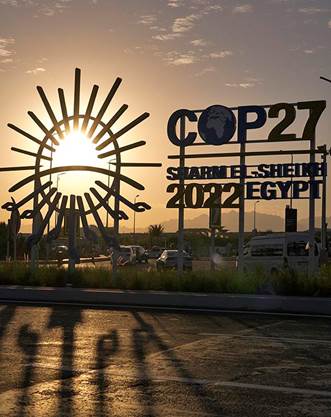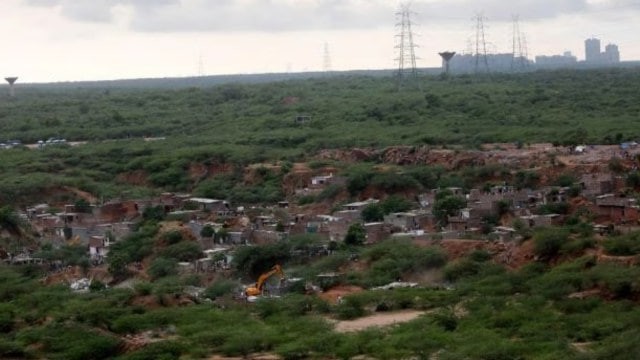Description

Copyright infringement not intended
Context: With the 27th edition of the Conference of Parties (COP) in Sharm El-Sheikh nearing its final stages and efforts being ramped up to arrive at a conclusive agreement, a consortium of countries, including India, jointly said that carbon border taxes, which could result in market distortion and aggravate the trust deficit among parties, must be avoided.
Details:
- The European Union has proposed a policy called the Carbon Border Adjustment Mechanism to tax products such as cement and steel, which are extremely carbon intensive, with effect from 2026.
- BASIC, a group comprising Brazil, India, South Africa and China, large economies that are significantly dependent on coal, has for several years voiced common concerns and reiterated their right to use fossil fuels during their transition to clean energy
- Their statement expressed “grave concern” that developed countries were not showing leadership or responding with a matching effort.
- “Unilateral measures and discriminatory practices, such as carbon border taxes, that could result in market distortion and aggravate the trust deficit amongst Parties [signatory countries to the United Nations climate agreements], must be avoided.
- BASIC countries call for a united solidarity response by developing countries to any unfair shifting of responsibilities from developed to developing countries,” the statement said.
- It also said that developed countries had “backtracked on finance and mitigation commitments and pledges” and there was a “significant increase” in the consumption and production of fossil fuels in the past year by developed countries, their statement underlined, even as they continue to press developing countries to move away from the same resources. “Such double standards are incompatible with climate equity and justice.”
- They said that adaptation was still not being accorded the balanced and substantive attention they deserved in the UN climate framework process, despite the opportunities and linkages with “loss and damage.”
- The latter refers to a demand by developing countries to have an institutional system to finance countries that are affected by climate change for the environmental damage that has already occurred.
Carbon border tax:
- A carbon border tax is a tax on carbon emissions attributed to imported goods that have not been carbon-taxed at source.
- The carbon border tax proposal is part of the European Commission’s European Green Dealthat endeavors to make Europe the first climate-neutral continent by 2050.
- A national carbon tax is a fee that a government imposes on any company within the country that burns fossil fuels.
- However, this often results in an increase of electricity costs in households and industry, which may lead to local business closures and other economic hardships for businesses and citizens.
- In contrast, a carbon border tax is able to protect a country’s local manufacturers, motivating them to adhere to green regulations.
- Many EU companies are at a cost disadvantage as they have been paying a carbon border tax and for carbon emissions since 2005 under the EU’s Emissions Trading System.
- The new carbon border tax can therefore lead to a more level playing field against importers, especially those from nations with more lax environmental standards.
- The border tax would not take effect until 2026.
How does this impact India?
- As India's third largest trading partner, the EU accounted for $74.5 billion worth of trade in goods in 2020, or 11.1% of India's total global trade.India's exports to the EU were worth $41.36 billion in 2020-21, as per data from the commerce ministry.
- By increasing the prices of Indian-made goods in the EU, this tax would make Indian goods less attractive for buyers and could shrink demand.
- The tax would create serious near-term challenges for companies with a large greenhouse gas footprint--and a new source of disruption to a global trading system already roiled by tariff wars, renegotiated treaties, and rising protectionism.
- A levy of $30 per metric ton of CO2 emissions could reduce the profit pool for foreign producers by about 20%if the price for crude oil remained at $30-40 per barrel.

https://epaper.thehindu.com/reader












